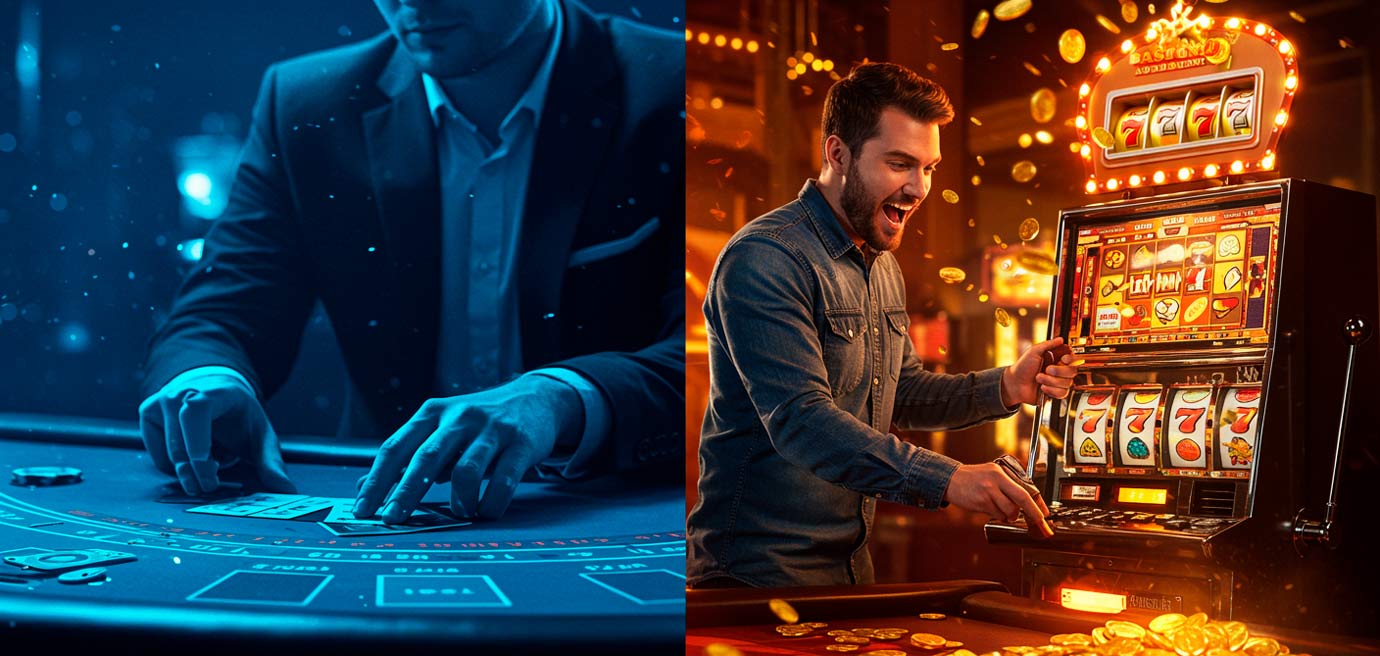
A First-timer's Guide to Casinos
Navigating the casino environment for the first time can be daunting. Here's how to make the most of it.
- Understanding casino layouts
- Key games to try as a beginner
- Etiquette and tips
- Managing your bankroll wisely
Casino luck influences the outcomes of games in unpredictable ways, shaping the experiences and expectations of players.
Casino luck refers to the role of chance or fortune that influences outcomes in gambling activities, and it is a critical factor in casino gaming because it shapes players' experiences and perceptions across various games where unpredictability is inherent.
Many casino games are predominantly luck-based. For example, slots, roulette, and lotteries operate almost entirely on chance, with outcomes governed by random number generators or physical randomness (e.g., the roulette ball landing on a number). Players cannot skillfully influence these games; winning depends mainly on luck.
In slots, each spin is driven by a random number generator, ensuring that outcomes are completely arbitrary. Similarly, roulette players depend on the random fall of a ball; strategies do not guarantee wins since players cannot predict or influence where the ball will land.
Games like baccarat also fall under this category, where players place bets on outcomes without any control over the gameplay, illustrating the randomness inherent in casino luck. Understanding these games draws attention to the core understanding that outcomes are not influenced by player decisions.
Some casino games require a blend of luck and skill. Games like poker and blackjack necessitate decision-making and strategy, relying on player knowledge while incorporating an element of luck. Skill involves understanding game strategies and making calculated decisions, while luck affects card distribution or dealer outcomes.
In blackjack, a player uses skill to evaluate when to hit or stand based on their hand and the dealer's showing cards. This skill can improve chances but cannot eliminate the luck factor of card distribution.
For example, in poker, players often must decide when to bet, fold, or raise, which involves strategy influenced by the cards they receive. Luck comes into play when suitable cards are dealt, determining potential winning hands.
Players often engage in superstitions like carrying lucky charms, wearing specific colors (e.g., red for prosperity in some cultures), following rituals such as knocking on wood, or betting on lucky numbers to feel more in control of their luck and outcomes.
Some common superstitions include rubbing the belly of a statue for good fortune, blowing on dice before rolling, or using specific seating positions at game tables. These rituals create a psychological comfort zone where players feel more empowered to influence luck.
The prevalence of superstitions across cultures illustrates that the concept of luck exists universally in gambling experiences, impacting how individuals approach gaming environments. This collective belief significantly shapes player engagement with casino games.
Casino luck is pivotal in games like roulette, slots, and lotteries, where randomness dictates outcomes.
Games combining luck and skill, like blackjack and poker, require strategic thought alongside chance.

These superstitions help players psychologically by reducing anxiety and boosting confidence, even if they have no real effect on outcomes. Belief in luck and rituals can influence player behavior and perception, making the gambling experience more enjoyable or meaningful despite the randomness.
Superstitions can instill a sense of control in an otherwise unpredictable environment, helping to alleviate stress and enhance enjoyment during play. As a result, players who embrace these beliefs may experience a more fulfilling gaming adventure.
The psychological impact of superstitions is strong enough to affect betting patterns. Players who carry a perceived lucky charm may continue betting with confidence, even when underlying odds suggest caution.
Players employ strategies like betting on favorite numbers or colors, sticking to routines, or setting personal limits to create a sense of agency over luck. While these do not change odds, they enhance the player’s feeling of control and enjoyment, sometimes improving decision-making by mitigating impulsive plays.
For instance, a player may choose to stick with a specific betting limit to avoid overspending, which helps manage their experience around the belief that they can influence luck through financial discipline.
Additionally, adopting selective betting strategies—like increasing bets after wins—enables players to feel a connection to their luck, although it remains purely psychological as outcomes themselves do not change with betting patterns.
Given luck’s dominant role, responsible practices include setting budgets, viewing gambling as entertainment rather than income, limiting playtime, and understanding that losses are part of the game. This helps players manage expectations and reduce risks linked to chasing luck.
Understanding one's emotional and financial limits is critical in a mixed-luck environment where chasing losses leads to distress. The emphasis on playing for enjoyment rather than profit creates a safer atmosphere for engagement with casino games.
Moreover, strategies such as taking breaks, staying informed about game odds, and dedicating time to research can help ensure players engage with a clear understanding of the role of luck in their gaming adventures.
Online casinos emphasize luck through bonuses and promotions, which create additional chances to win and add excitement. Their digitally implemented random number generators ensure fair play, while promotional incentives shape player perception of potential luck and reward.
Many online casinos use marketing strategies that highlight lucky draws or surprise bonuses to create enthusiasm, drawing players into the perception of luck-enhanced opportunities. As a result, players may feel they have enhanced chances through welcome bonuses or free spins on slot games.
It is vital that players approach these opportunities with the same awareness of inherent risks associated with gambling rather than expecting luck to guarantee winnings every time.
Many players share anecdotes of "lucky streaks" or unexpected wins, emphasizing luck's unpredictability. While such moments are memorable, statistically, casinos maintain an edge by designing games with a slight house advantage ensuring long-term profitability.
Player experiences often involve a rollercoaster of emotions due to the highs of significant wins juxtaposed against inevitable losses, where luck becomes a focal point of discussion within gaming communities. This storytelling aspect creates a culture of shared experiences around luck within gambling.
Despite the popularity of these stories, it is essential to remember that they represent exceptions rather than the norm, emphasizing the role of luck as part of the gambling journey.
Casino luck remains a foundational aspect of gambling, influencing outcomes, player behaviors, and experiences across various casino games. Although skill can influence certain games, the unpredictable element of luck defines much of the casino environment, supported by superstitions and strategies that shape player interaction with chance.
Understanding both luck’s limits and its significance is essential for enjoying casino gaming responsibly and realistically.
We are proudly sponsored by key players in the casino gaming industry, bringing you exciting opportunities and experiences.





Navigating the casino environment for the first time can be daunting. Here's how to make the most of it.

Discover what goes on behind the scenes in the casino industry and how it operates seamlessly.
The latest slot machines incorporate cutting-edge technology for a richer gaming experience.
Mobile gambling apps are surging in popularity, offering convenience and accessibility to players worldwide.
Casinos are implementing advanced security measures to protect player data and ensure a safe gaming environment.